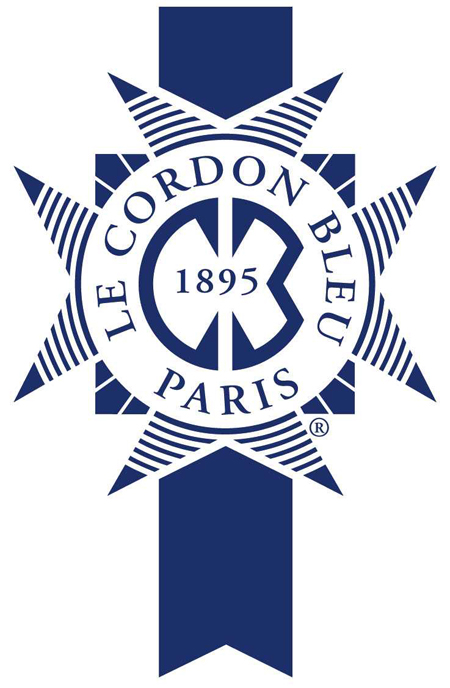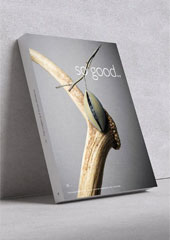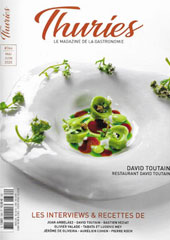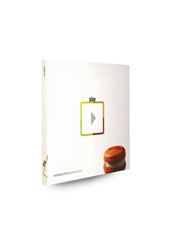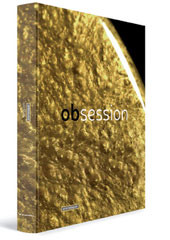Articles
Le Cordon Bleu Paris
A new campus for summer 2016
News - Articles
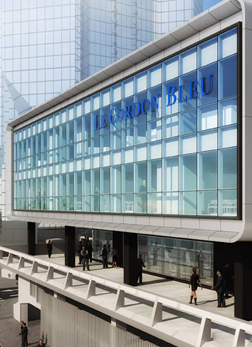
Le Cordon Bleu, the world's leading network of Culinary Arts and Hotel
Management institutes, opened its new Paris school on June 22, 2016.
Overlooking the Seine river and the Statue of Liberty,
Le Cordon Bleu sits alongside Beaugrenelle shopping centre,
near the Eiffel Tower.
With an ever increasing demand for training programmes
in the Culinary Arts and wine, hotel and
restaurant management, Le Cordon Bleu
will welcome more than 1000 students every year.
The 4000 square meters flagship institute is fitted out with ultramodern equipment and
boasts the latest technology with particular emphasis on the use of digital systems.
Built of aluminium and glass, the building’s design was envisaged with the latest
environmental norms in mind enabling it to be eco-friendly.
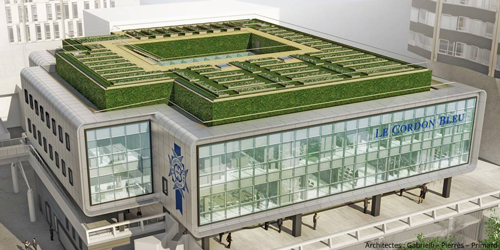
This new contemporary building will provide students with:
- 7 practical classrooms for cuisine, pastry and boulangerie lessons, including one classroom that has been specially designed for teaching Asian cuisine: Thai, Japanese and Chinese.
- 3 demonstration rooms
- 1 cellar-style room dedicated to Wine and Management.
- 6 modular classrooms which can be transformed into a 420 m² function room
- 1 student area with multimedia equipment and a large library with a wide selection of international culinary books and magazines
- 1 boutique with a range of products and gourmet gifts all carefully selected by Le Cordon Bleu Chefs, as well as an array of cuisine and pastry equipment.
- 1 workshop dedicated to individual or group lessons for cuisine amateurs.
- Le Cordon Bleu Cafe gives students and passers by the opportunity to try a range of quality goods either on site or at home
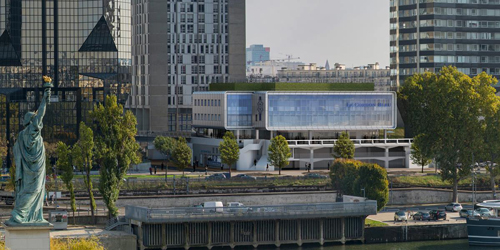
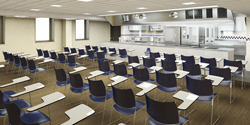
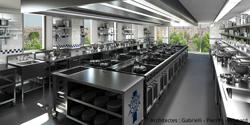
One of the building's innovations is its roof which has been transformed into
a vegetable garden measuring more than 800 m2.
The garden is energy autonomous: the heat from the kitchen hoods is collected and used
to heat the green house, a rainwater tank enables the garden to be watered and a number of
composters supply fertilizer.
Beehives also provide the school's honey.
The garden allows students to learn about how fruit, vegetables, herbs and edible
flowers are grown in an urban setting. It also provides some of
the fresh ingredients for cuisine lessons.
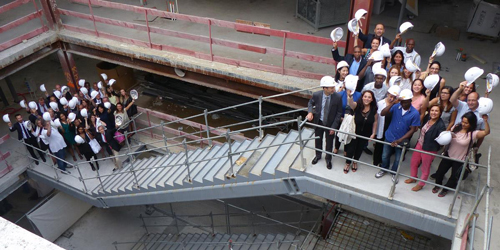
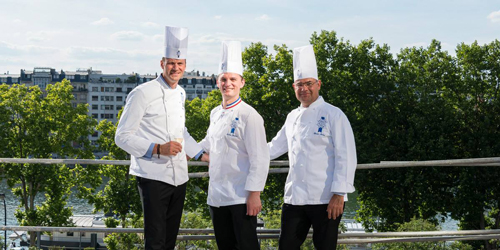
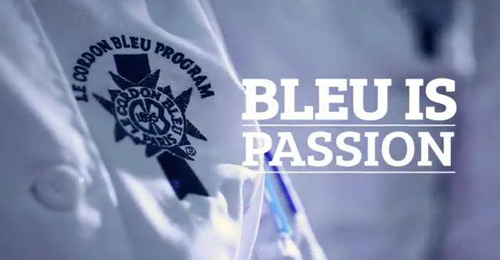
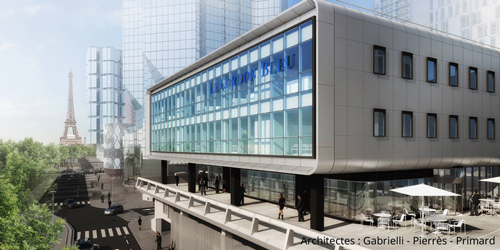
Video
Info
